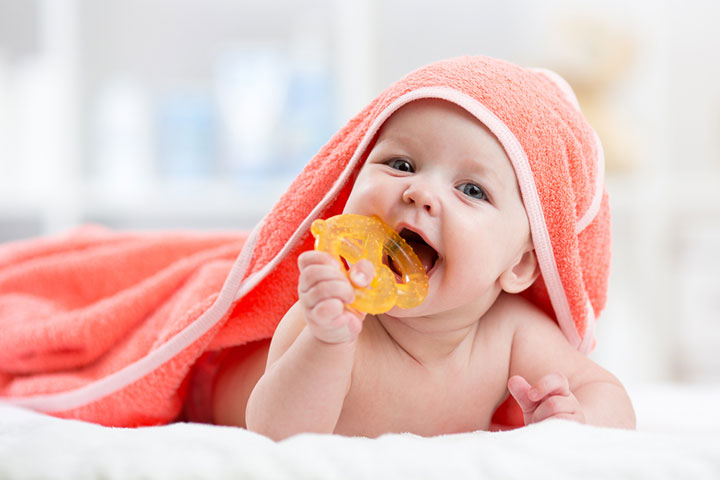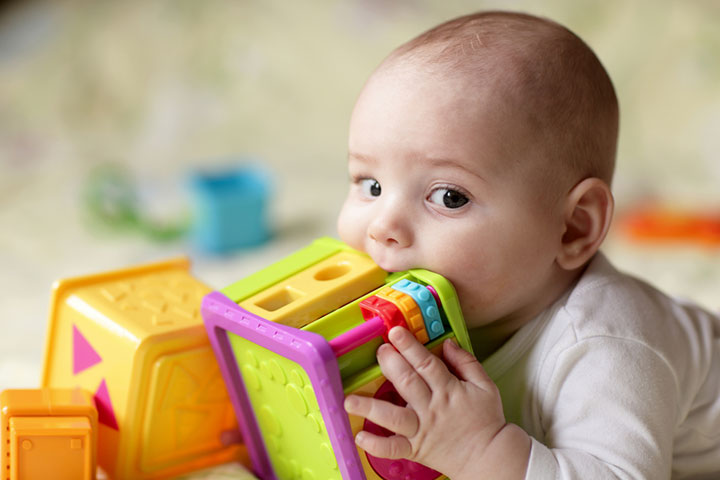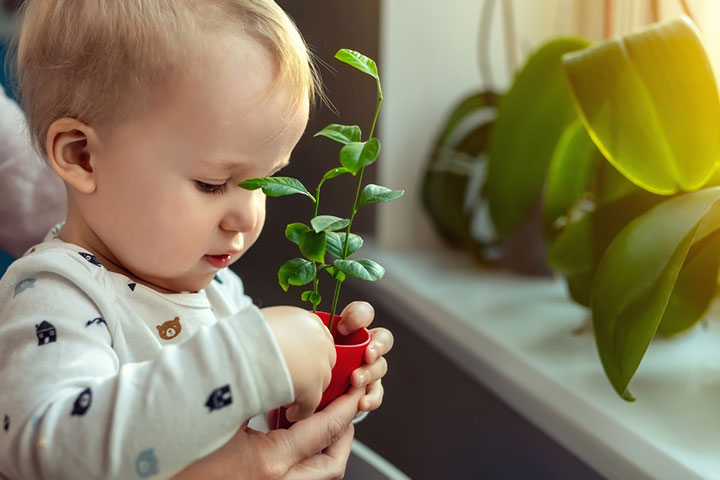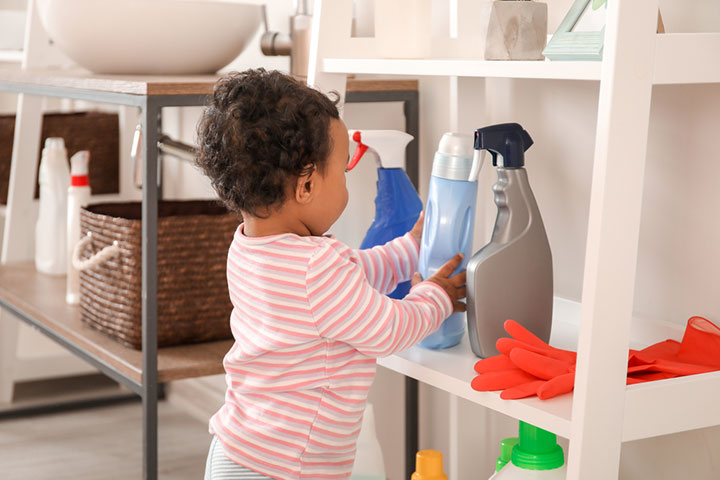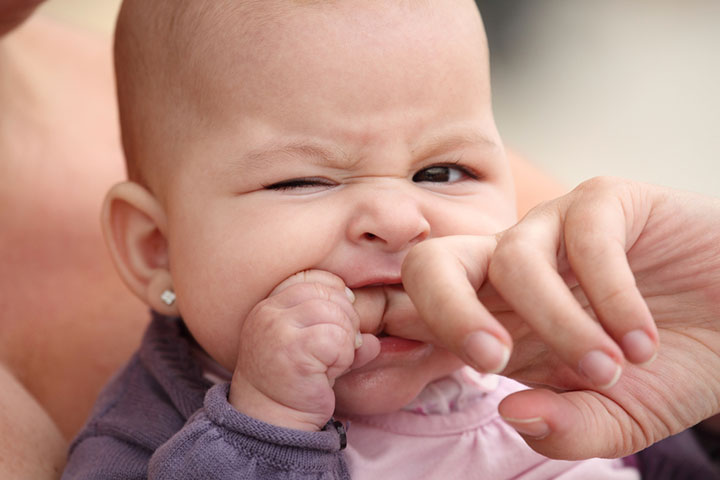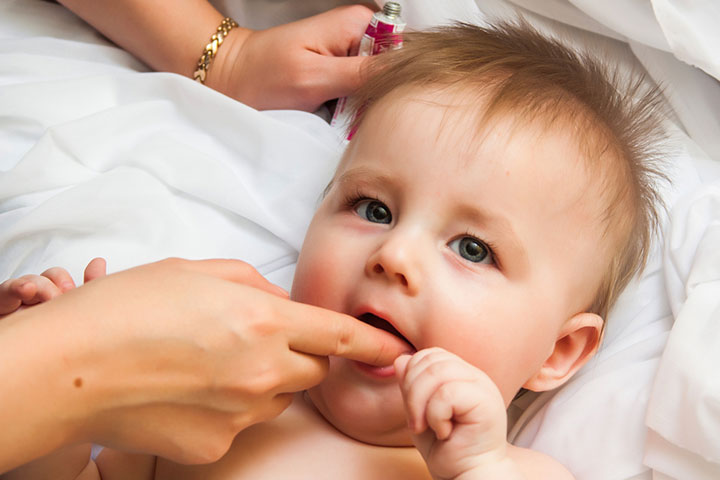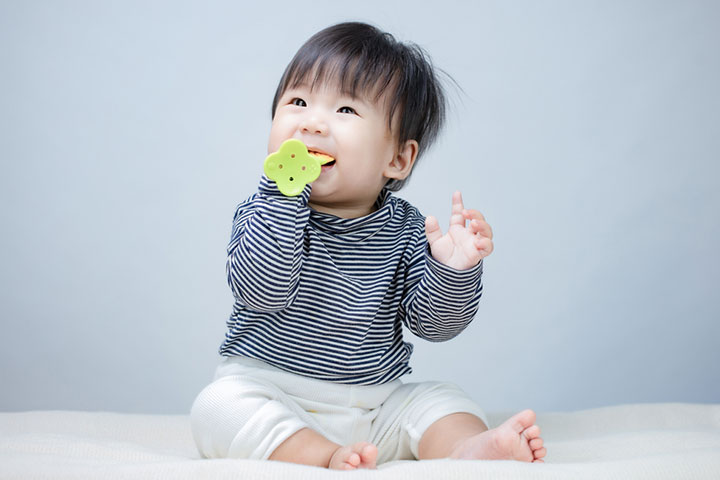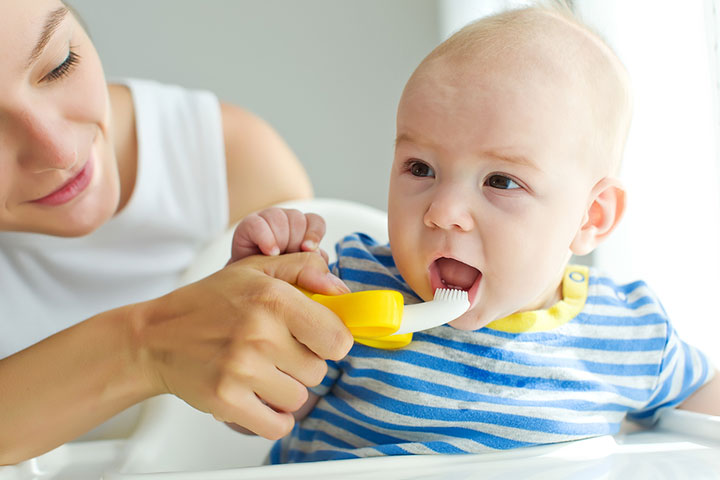
Image: Shutterstock
The moment you step into parenthood, the very world you are so familiar with looks like the most dangerous place. You won’t rest till you babyproof the whole house and see that every inch of your room is vacuumed and dust-free. When you have a newborn, it is comparatively easier to manage them as they won’t be able to walk around in dangerous corners, but the moment they learn to crawl, stand and walk, you enter a whole different level of stress. They might break something, pull something out and worse, swallow something. When your baby reaches two years, they try to compensate for the teething process by trying to chew everything at sight. Let us read the stage where kids experiment with chewing and how to keep your baby safe from choking hazards.
Why Do Babies Put Everything In Their Mouth?
Image: Shutterstock
Babies put objects in their mouths for a variety of reasons. After seven months, newborns begin placing items in their mouths to learn about the world around them. They begin by putting their hands and feet in their mouths and then gripping, prodding, pushing, and patting items as they get more familiar with their environment. This activity aids in evaluating objects by babies while also strengthening their mouth muscles.
During this phase, their first set of baby teeth begins to emerge. Sore gums, irritability, and the desire to chew on objects such as toys, clothing, and hands are all common at this stage. When your baby is teething, they will attempt to sample anything. The process of teething may be excruciating for young children.
There is a choking hazard and chances of pathogens entering a baby’s mouth because of this impulse to chew on items. If you leave your child alone, there is a good chance they will put the things in their mouth. Here are a few things commonly found in a baby’s home, but you need to keep them locked when your child reaches this phase..
1. Miniature Toys
Image: Shutterstock
Every house with a toddler has thousands of toys lying on the floor. No matter how many you get, you will always be tempted to buy more. Toys are the first things your child will put in their mouth when given a chance to play with. The more colorful and easy to hold they are, the more it attracts your baby to gnaw on it. However, small toys and toy pieces that can be ingested should not be given to children under two. Keep all battery-operated toys away from your child till they are responsible enough to use them. Also, make sure the material of the toy and the paint are safe enough for the baby.
2. House Plants
Image: Shutterstock
Many people keep indoor plants in their homes for both beauty and fresh air. Some plants can be dangerous for newborns, despite their usefulness. Ingestion of old leaves or seeds of these plants is a health hazard for your infant. Consult your local nursery to eliminate any wild houseplants that may be dangerous for your child.
3. Cleaning Supplies
Image: Shutterstock
Detergents and cleaning materials are available in a variety of scents and colors. Babies frequently mistake them for juice or other edibles, spill them out, or get them all over their hands.
What to Do: Keep all chemical goods out of your child’s reach by placing them in locked cabinets or other secure locations.
How To Handle Baby’s Teething Issues And Maintain Oral Hygiene
Image: Shutterstock
The main problem is the teething process that irritates your baby’s gums. This also makes your baby super cranky. To ensure proper oral hygiene is maintained while your baby stuffs things in the mouth, you can do a few things.
1. Gently Rub Your Baby’s Gums
Image: Shutterstock
If your baby’s gums are hurting, try rubbing them gently with a clean, damp cloth, your finger, or a cool spoon.
2. Give Your Baby A Teether
Image: Shutterstock
Your child’s gums may benefit from chewing on a teether. The best teether is one that is composed of solid, high-quality rubber. Stay away from teethers made of plastic, metal, or liquid-filled teether rings.
3. Provide Them With Cold Items To Chew On
Image: Shutterstock
Sore gums can be alleviated by chewing on a cool pacifier, which is also beneficial to their health. If your child has reached the stage of eating solids, you may also offer some cold, sliced fruits. This will feed them and ease their discomfort.
4. Be Consistent In Your Oral Hygiene Practices
Image: Shutterstock
Some parents believe that brushing teeth with water is sufficient, but a dentist may tell you that toothpaste is necessary for a thorough cleaning. Plaque can be removed using a rice grain-sized amount of baby-safe toothpaste. Baby’s teeth are exceptionally delicate and made without additional colors, flavors and are all-natural.
So now that you know how to take care of your unstoppable child, it will be easier to protect them against germs and pathogens. Keep all small things like keys and sharp objects away from them. Even though baby proofing helps keep them safe, there is nothing like watching over your kids to make sure they do not do something that harms them. So, do you have any secrets to keeping your baby happy and healthy while teething? Let us know in the comments section!

